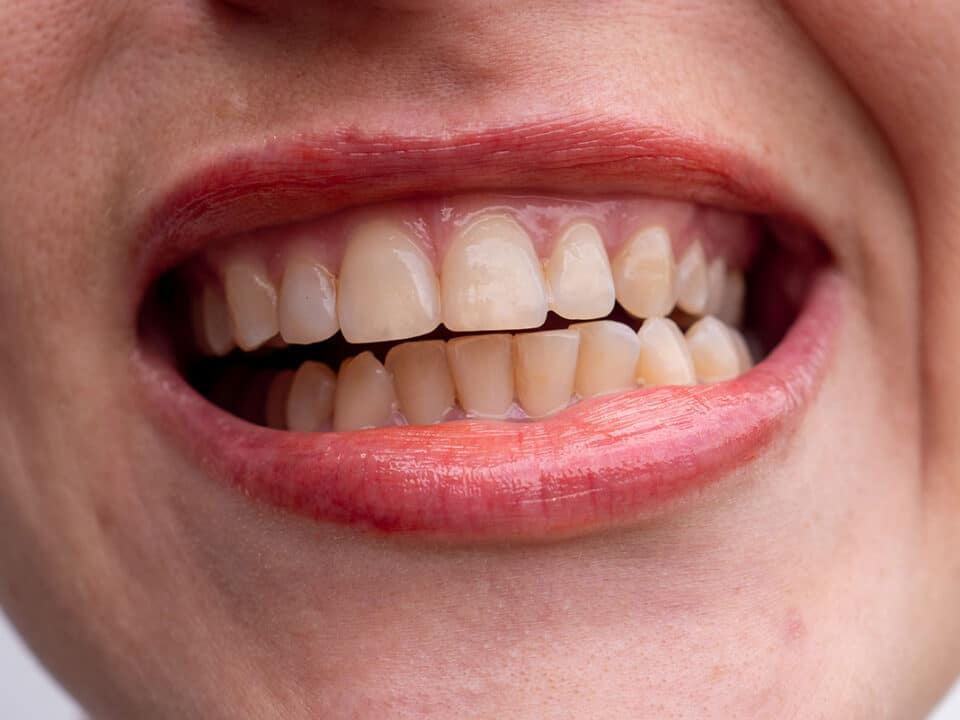Are cold or hot drinks and food causing you tooth pain? If so, it means that you are suffering from one of the most common dental conditions known as sensitive teeth. Tooth sensitivity occurs for a variety of reasons but with modern dentistry you don’t need to suffer. So, what can you do about sensitive teeth? Read on!
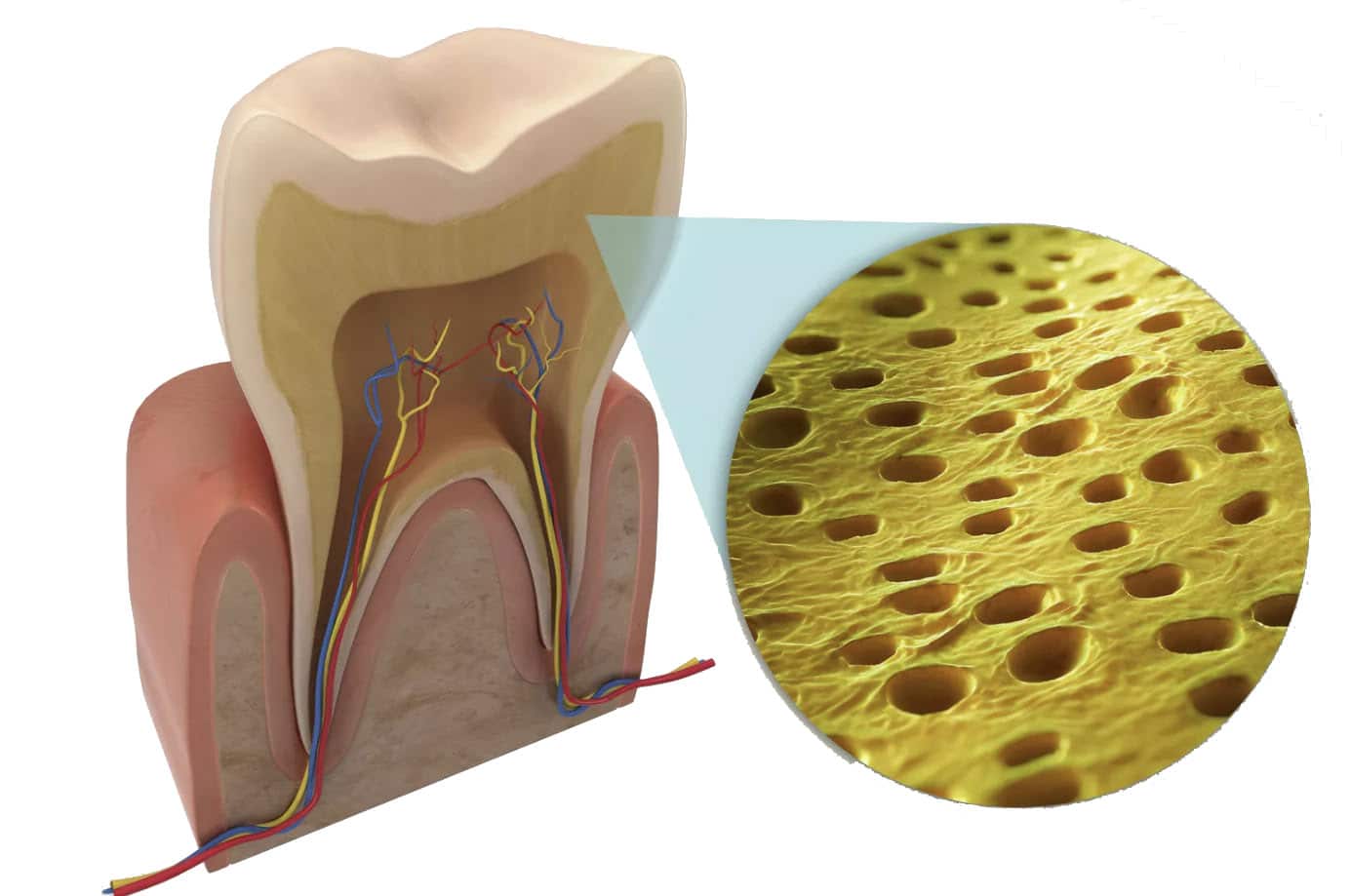
Why are my teeth sensitive?
Tooth pain caused by sensitivity occurs when the enamel on your teeth has worn down to the point where the dentin, which is connected the nerve of your tooth, has been exposed and is triggering the pain you feel.
General causes of tooth sensitivity
Tooth sensitivity can be caused from an untreated cavity, loose filling, chipped or cracked tooth, gum disease, gum recession, root erosion or the most likely culprit – worn enamel. If that seems like a lot of causes to you, you’re right, because it is. Unfortunately, tooth enamel is easy to wear down but also extremely important to a pain-free mouth.
Gum disease and tooth sensitivity
Teeth that are covered in plaque and tartar can often cause your gums to recede, exposing the root of your teeth. This can lead to painful tooth sensitivity and may require medication or surgery to repair.
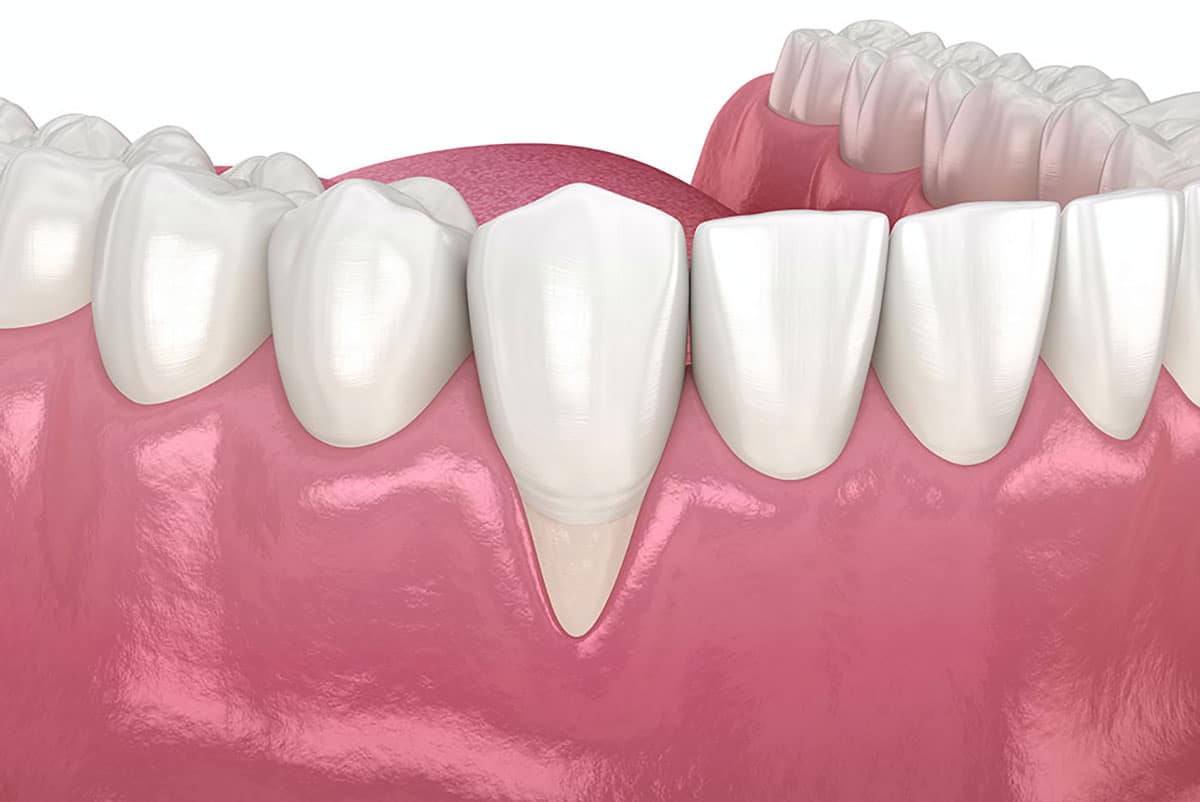
Gum recession and tooth sensitivity
A receded gum line exposes the roots of your teeth and cause tooth sensitivity among other conditions. The roots are not covered by enamel like the rest of your teeth and are thus much more sensitive. Your gum line may recede from a number of factors including, clenching, smoking and gum disease. Gum recession can be mediated through crowns or dental fillings, medication or gum graft surgery for more extreme cases.
How to avoid tooth sensitivity caused by worn enamel
It’s difficult to keep the protective layer of your teeth in good condition, after all, this layer takes the brunt of everything you put your teeth through. That means you should be mindful of a few things when it comes to daily life and the maintenance of your teeth.
Visit the dentist and check on your enamel
A dental professional will be the best person to give you information about your teeth. At your next appointment, book one if you have to, make sure to ask to have your tooth enamel inspected, especially if you feel pain caused by sensitivity. Your dentist will also be able to make personalized recommendations on how you should care for your enamel.
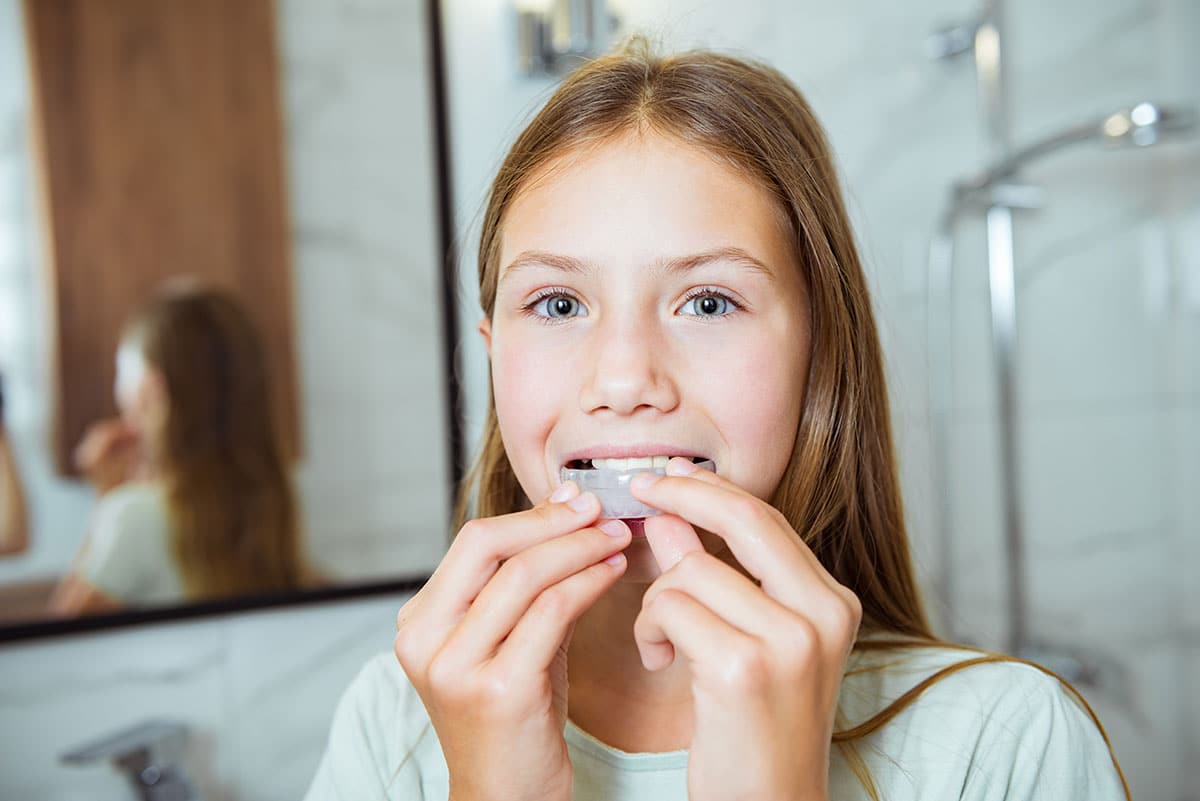
Avoid clenching your teeth
When you clench your teeth, you’re also grinding them. The grinding and the pressure work to wear away the enamel quicker than you’d think. This is also referred to as bruxism. It can be difficult to not grind your teeth because it’s mostly a subconscious behaviour but working towards reducing stress in other areas of your life often helps. Be mindful of when and why you’re clenching your teeth and make adjustments. Patients often clench their teeth at night, in which case your dentist can design a splint of mouth guard to stop you clenching or grinding. Sever cases may require the position of your teeth to be adjusted or physiotherapy for the jaw muscles. Muscle relaxants have been known to help ease clenching but long term use is not recommended.
Go easy when you brush your teeth
Brushing your teeth effectively doesn’t mean applying loads of force to the brush head and your teeth. Repetition is the name of the game, so back off the pressure and up your stroke rate. Of course, you also need to be mindful to brush your teeth from the top down only. Do not brush your teeth from side to side at the gum line. That’s old school knowledge! Use only a soft or ultra soft brush and replace it when necessary.

Avoid acidity in foods and drinks
Acidity and sugar love to attack your tooth enamel. Next time you feel the urge to snack, reach for fruits, vegetables, cheese, milk and other natural foods instead of candy. Avoid drinking soda due to the sugar and acidity contained within. If you do consume acidic foods or drinks, you should rinse your mouth to reduce the acid that will eat away at your teeth. Your saliva is also excellent at reducing acid, so chew a piece of sugar-free gum to activate your salivary glands. Although it may sound counter-intuitive, don’t race to brush your teeth after eating or drinking something acidic. Acid will weaken your tooth enamel and scrubbing with a toothbrush just exacerbates the issue.
Don’t over-bleach your teeth
Bleaching your teeth may give you sparkling white teeth, but over do it and you could end up with damaged enamel and tooth sensitivity pain. Luckily, sensitivity caused by bleaching your teeth is typically temporary, so take a break, and you should be fine. It doesn’t mean that you shouldn’t bleach your teeth, just make sure you’re doing it properly, under the care of your dental professional.
Treating sensitive teeth
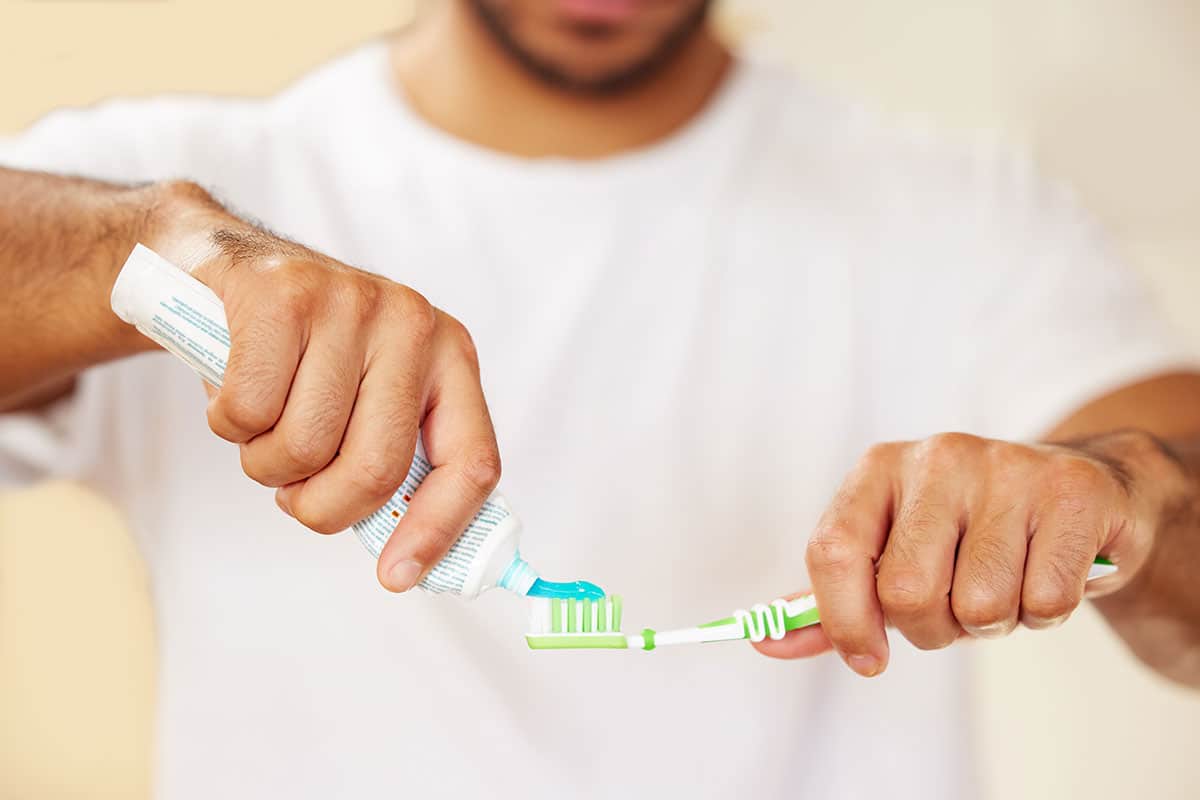
Use a repairing toothpaste designed for tooth sensitivity
If you notice that your teeth have become sensitive, or you just want to protect against it, using a toothpaste designed for sensitive teeth is a good bet. Companies like Sensodyne have made their name off delivering effective sensitivity toothpastes to consumers. These days there are tooth pastes available that will actually work to repair your damaged tooth enamel and combat tooth sensitivity pain.
Get a fluoride treatment from your dentist
A natural mineral used to build strong teeth and prevent cavities, fluoride is a vital step to good oral health. Fluoride supports your tooth enamel while fighting bacteria and gum disease. Make sure you keep up to date with your dental cleanings as a fluoride treatment is typically included.
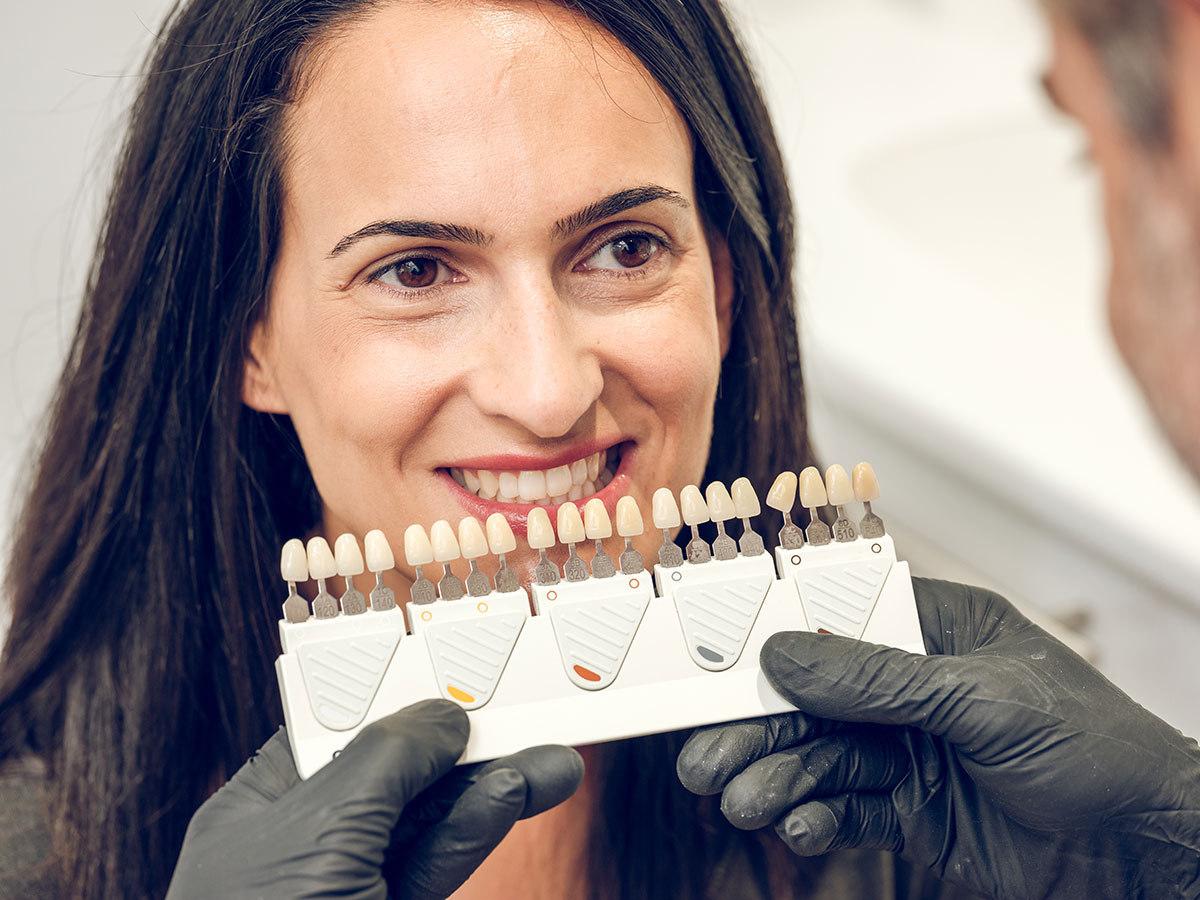
Dental fillings, crowns and sealants
Basically, your teeth are sensitive because areas of your teeth or roots are no longer covered by enamel. The roots of your teeth are not covered by enamel and if exposed will become quite painful. Same goes for the visible areas of your teeth, where if the enamel is worn away and dentin exposed, they will become sensitive and painful. Your dentist may choose to use dental fillings, crowns or sealants to cover up exposed areas so your teeth are better protected from damage and you from pain.
Gum recession surgery (gum graft)
For more serious cases of gum recession your dentist may recommend a gum graft. The gum graft procedure will remove material from your upper palette and reattach it to areas of gum recession. This treatment is very effective but is time consuming and can be a painful or uncomfortable process to go through.
Conclusion
It’s never too late or too early for you to begin taking steps to avoid tooth sensitivity. As with most things, prevention is the best remedy so pay attention to your oral health routine and make adjustments if necessary. It is also recommended to consult with your dental professional and follow their advice on how you should proceed.
Check us out on Facebook and Twitter for daily information about Oral Health from Martindale Dental, or visit our offices in Hamilton and St. Catharines.
Have more questions?
Please contact us for all inquiries or to book an appointment with one of our convenient clinic locations. We look forward to hearing from you.




